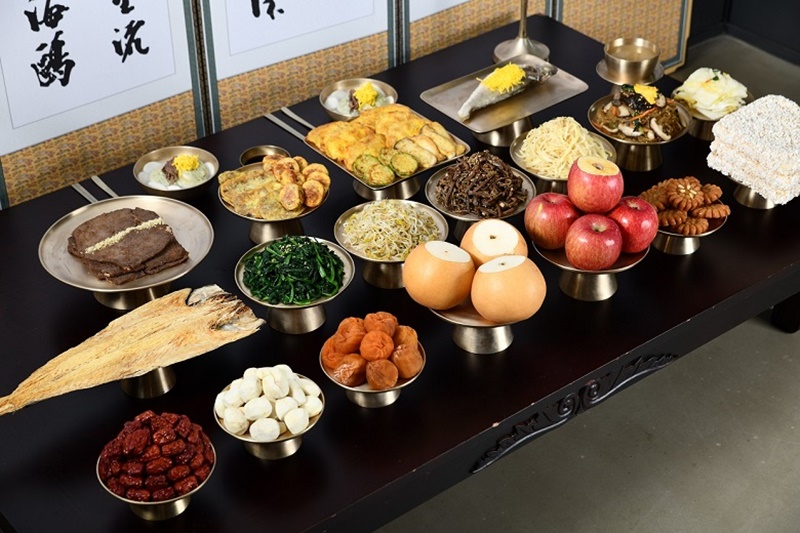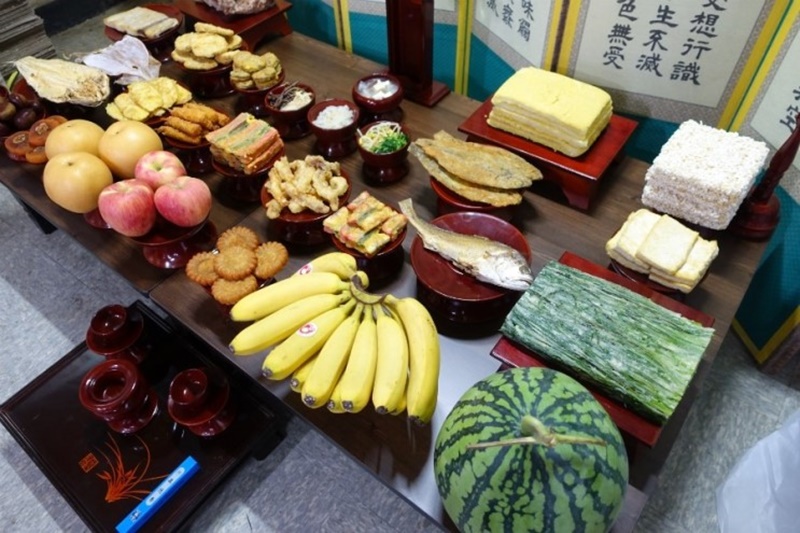
Ways to prepare charye (ancestral rite) tables differ by region and household, but a common practice is to place on them tteokguk (rice cake soup), fruit, tea or alcohol. (Dongwon Group)
Seoul | Jan. 16, 2020
Seollal (Lunar New Year), one of the country's biggest holidays, falls on Jan. 25 this year.
Koreans traditionally begin the morning of Lunar New Year by observing charye (ancestral rites). The way the rituals are observed differs by region and household, but a common practice is to place tteokguk (rice cake soup), fruit, tea or alcohol on the charye table.
According to the Korean Studies Institute (KSI), Koreans from the 1960s started to put quite a bit of food on their charye tables as the nation saw more abundance thanks to industrialization.
More people, however, are urging a reduction in the volume of food on the charye table because food preparation can pose a major burden, saying a table should have just enough food to prevent leftovers.
Lim So-young, 35, a resident of Seoul's Eunpyeong-gu District who shopped at a discount chain store on Jan. 16 to buy food for charye, said, "We don't include hangwa (traditional confectionary) because we don't eat it."
"I think it's more respectful to our ancestors if we don't waste food."
In addition, several delivery services offer food prepared for charye. Certain households are also simplifying their charye tables with pre-cooked foods purchased from convenience stores or discount chains.
Kang Su-kyoung, 63, a resident of Seoul's Mapo-gu District who has observed charye for 40 years, said, "We used to put so much food on our charye table in the past, but all of our relatives have passed away and now there's not enough time to prepare all the food."
"I purchase food that requires so much time to prepare such as jeon (traditional pancakes) and seasoned vegetables."

Tropical fruits are also increasingly more common on charye tables. (Healthy Lunchbox)
Yoon Hee-jung, 43, a resident of Seoul's Eunpyeong-gu District, placed bananas and pineapples on her charye table last year.
"My late grandmother loved fruit," she said."This year, I will place Shine Muscat grapes on the table."
"We can preserve our cultural identity while catering to the needs of each household," said Kim Mi-young from the KSI. "What's most important is that we respect our ancestors with all our hearts and maintain familial harmony."
eykim86@korea.kr